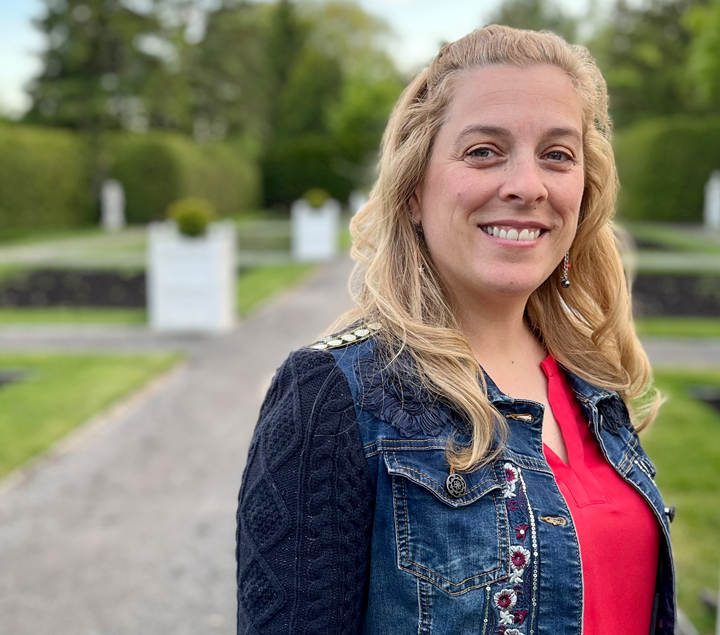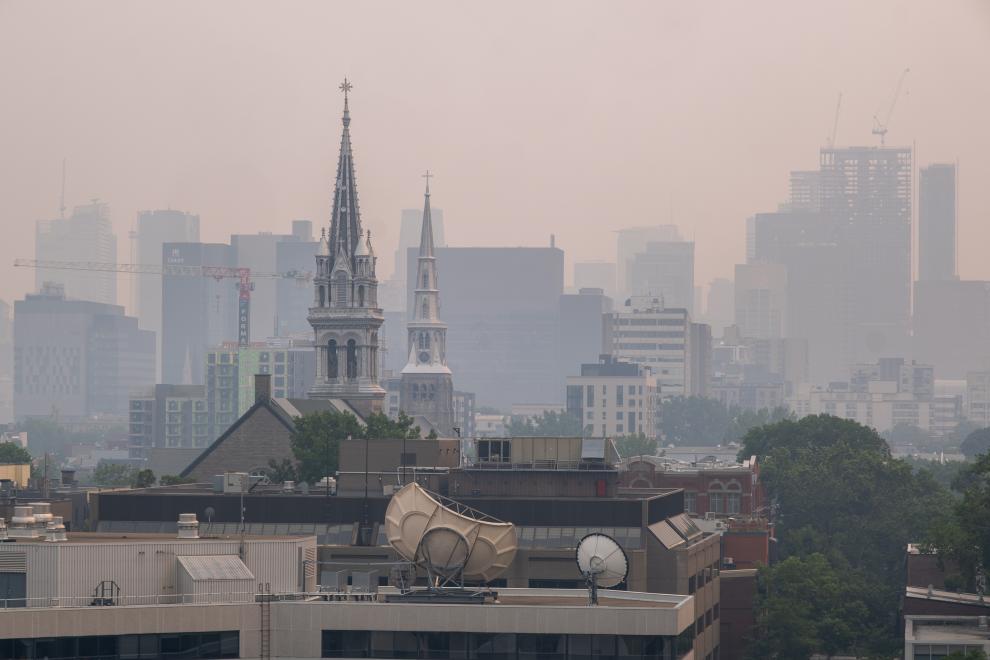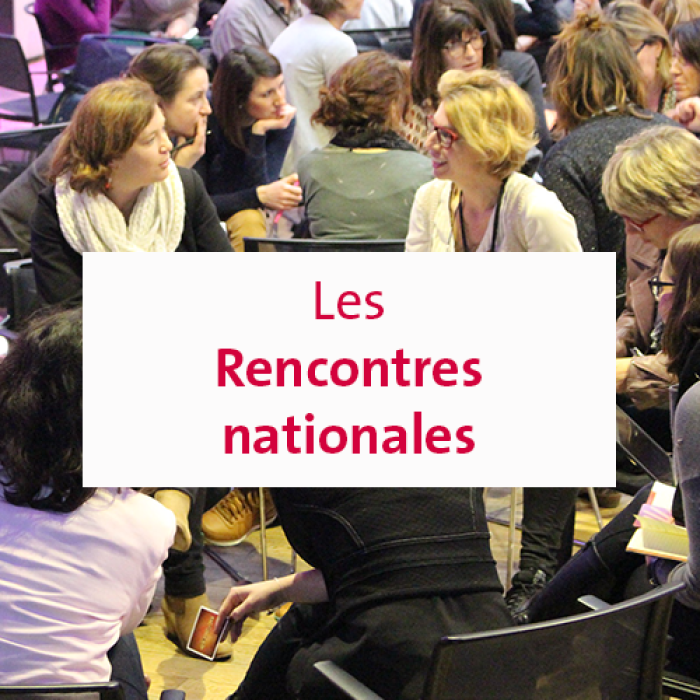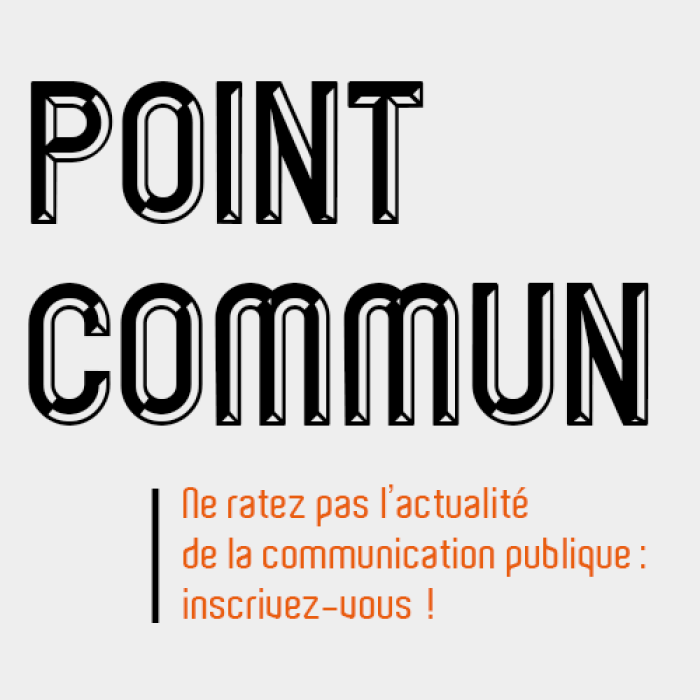
Quebec communicators on the cutting edge of integration
Following her appointment as chair of the Municipal Communicators’ Association of Quebec Province (Canada), Annie Lafrenière spoke to Commonality about the challenges facing our profession in North America and the reasons why local communications are more relaxed than in other jurisdictions. A source of inspiration, but also a model approach, especially when you consider what our Canadian colleagues are going through at the moment, with massive forest fires ravaging several provinces.
Who is Annie Lafrenière?
Annie Lafrenière, Director of the Communications and Citizen Experience Department, was appointed Chair of the Municipal Communicators’ Association of Quebec Province (ACMQ) in June 2023 following the association’s annual conference in Saint-Hyacinthe, near Montreal. She has been a member of the ACMQ’s Board of Directors since 2020 and will now chair the association, which was founded in 1978 and whose mission is to develop its members’ public communications skills and act as a forum for exchange and discussion.
Commonality: How would you define public communication in Quebec?
Annie Lafrenière: It’s different from public communication in France and Europe. What struck us when we took part in the Cap’Com Forum in Strasbourg was that this event brings together all public communicators, all those who work in public services in the regions, and not just those who work in local communities. Whereas in our network, it’s just those who work in city councils. When it comes to public communications, the challenges are huge because we don’t have the same budgets as private companies or those of some local authorities in Europe. When I returned from this trip to Europe in 2022, I was thinking, “Goodness, we don’t have enough money”. It’s as if we haven’t understood the importance of public communication in Quebec. So, our challenge is to have the right tools for the job, but with limited financial resources.
Commonality: That seems to be the challenge for all of us today. How do you deal with it?
Annie Lafrenière: Some of our towns have no communicators. That’s not how it should be. In these cases, communication becomes part of the general manager’s role. (For towns with fewer than 10,000 residents, this is what happens in the vast majority.) And yet the need exists. What is currently very popular in public communications in the regions is helping to increase citizen participation, with participatory budgets and surveys. We want citizens to voice their opinion. Just because someone lives in a big city doesn’t mean their opinion is more important. In Blainville, home to 60,000 residents, we are conducting more and more surveys, in addition to involving residents in a variety of other ways. For example, we’ve set up two advisory committees, one for people with disabilities, with the aim of finding out what we can do to improve their quality of life, and the other for Blainville residents of foreign origin, so, for immigrants.
Commonality: This issue seems to be specific to North America and the politics of integrating new residents or immigrants. How do you communicate with them?
Annie Lafrenière: It’s not as simple as that. In Blainville, we’ve noticed that over the last three years or so, the number of new residents has been on the rise. They are a growing audience. We were able to gauge this at the brunch for new residents held every September. It’s the perfect welcome event, where we meet them and introduce them to the city’s services. There are always a lot of new faces, visible minorities, people from every ethnic background. Although we haven’t carried out any specific surveys, we’ve noticed that the language barrier is a growing problem among new residents. It was because of this that we set up the advisory committee I just mentioned.
Commonality: What works best with this committee?
Annie Lafrenière: They gave us about fifty ideas, we kept eight and implemented those this year. For example – and this might surprise you – skating lessons! It works really well, for both adults and children. These are people who have never experienced winter before.
We need to come up with ideas and think outside the box!
Commonality: What are the challenges facing Quebec’s future communicators?
Annie Lafrenière: These challenges are:
- Raising the profile of our profession as municipal communicators. It’s a profession that isn’t given enough recognition by general managers.
- The growing number of access points: in every city we’re faced with an increasing number of platforms. It’s difficult to manage, especially for colleagues who are on their own.
- A series of mini-challenges:
- TikTok, because it’s an issue if we’re no longer allowed to use it (the Canadian government has asked us to stop). But we were on a roll with our TikTok accounts.
- Citizen participation, because we need to find other ways of gathering people’s opinions without resorting to the same old surveys.
- Diversifying how we communicate, because simply churning out press releases, posters, web pages and brochures is boring. We always do the same thing. We need to come up with ideas and think outside the box!
Commonality: Here in Canada, people seem to speak freely and with less aggression. Is that really the case?
Annie Lafrenière: Yes, there are fewer confrontations, people are more caring. There’s an expression that we hear a lot these days: be kind. For us it means “listen to each other”. There’s a reason why citizen participation is so important here. We want to listen to what citizens have to say. It’s an important expression. Politicians say it, people say it. We also advocate being more kind on social media.
Here, our natural tendency is to reach out to others. Without being intrusive. We just ask people if they need help.
Commonality: Why do you think you’re less aggressive in these areas?
Annie Lafrenière: It’s all about listening. We Quebecers have a reputation for being welcoming. Here, our natural tendency is to reach out to others. Without being intrusive. We just ask people if they need help. It’s just part of who we are as Quebecers. It’s not scientific.
In winter, people are more likely to be indoors. It brings people closer together. Because of this, people are fundamentally very friendly. When I pass someone in the street, there’s a 50/50 chance they’ll say hi.
That makes it easier to communicate.

How were communicators involved in managing the massive wildfire crisis?
Commonality: Do you have any examples of public communications in Quebec that raised awareness of forest fires?
Annie Lafrenière: The municipalities most affected by forest fires are small towns with fewer than 5,000 inhabitants. They often have no communication resources, or only one in some cases. The challenge is huge because these municipalities find themselves in an emergency response situation. The communicator is at the heart of the crisis and must provide emergency communications for several days in a row. Major forest fires are common at this time of year in Northern Quebec, but the difference this year was that the fires came dangerously close to the towns. Communicators need to focus on the essentials of emergency communications:
- Providing daily updates on the situation on their website: progress of fires (each fire has a number), expected weather, summary of forest firefighters’ work, daily instructions, roads closed, air quality, available resources, reminders of bans and good behaviour, etc.
- Communicating information about evacuation or refresh-and-rest stops for people affected by smoke. If an evacuation is necessary, each evacuated citizen must register so that the municipality knows who has evacuated and who has not yet evacuated.
- Relaying video messages from the mayor in their municipality. This makes it easier for elected officials to convey messages quickly to the public.
A great deal of awareness-raising has been done by the Quebec government to support Quebecers living further north. For example, open fires have been banned throughout the province and the vast majority of towns and cities cancelled the firework displays they had planned for 24 June, Quebec’s National Holiday. It was a no-brainer!
For more information on the work of our communicators on this subject, I invite you to check out the City of Lebel-sur-Quévillon's Facebook posts and website:
https://www.facebook.com/lebelsurquevillon
https://www.lsq.quebec/
Or even the City of Chibougameau:
https://www.facebook.com/villedechibougamau
https://www.ville.chibougamau.qc.ca/accueil



